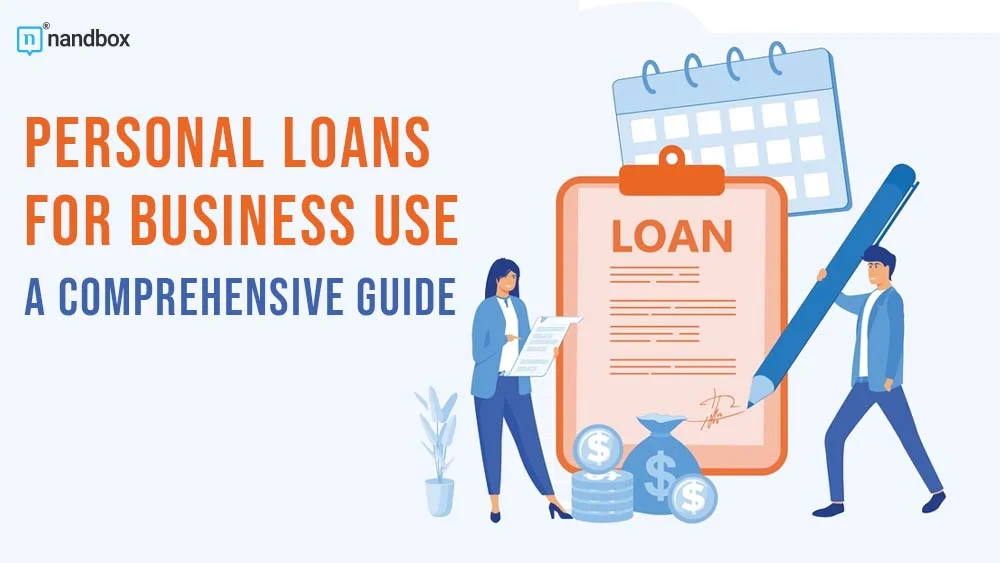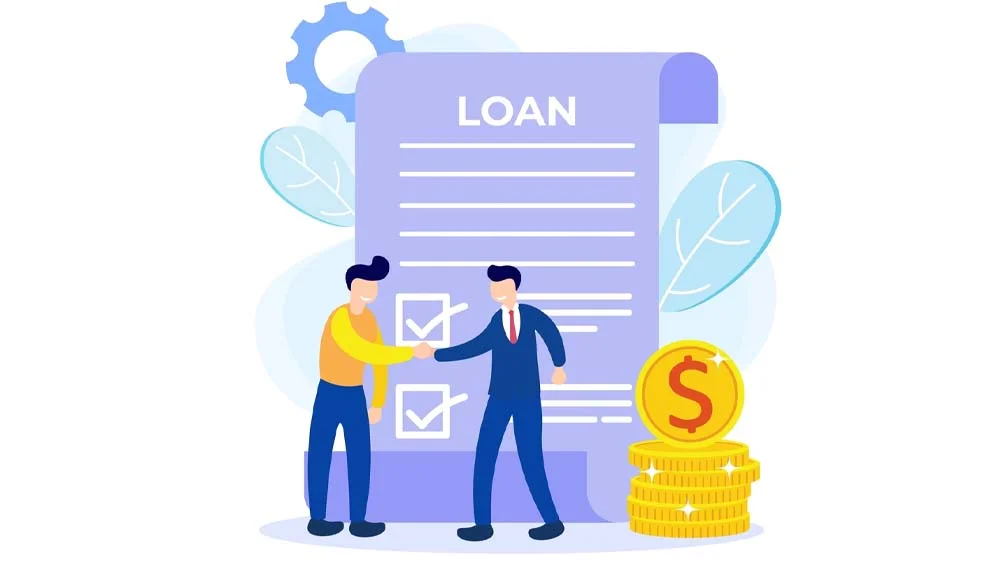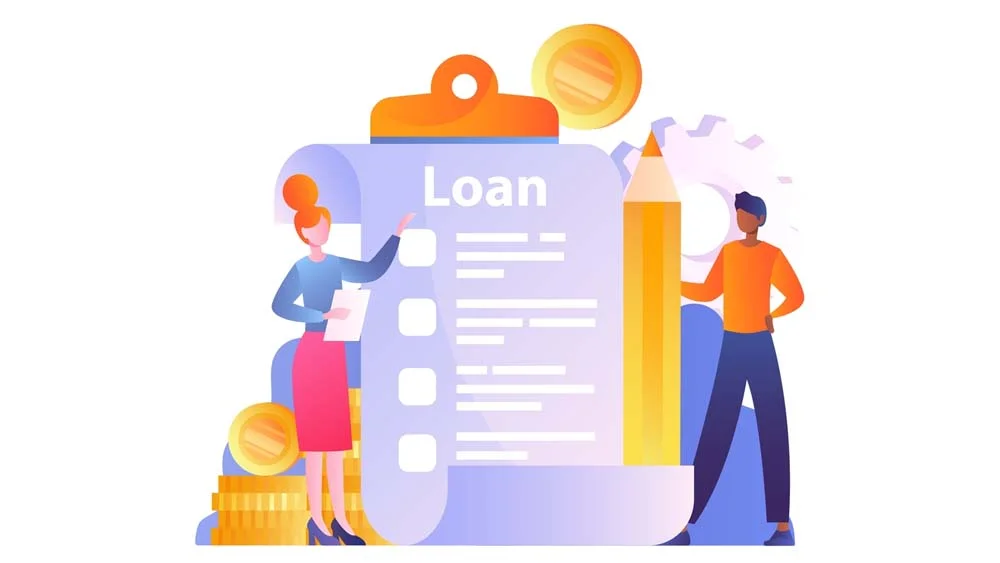A personal loan is a sum of money that an individual borrows from a bank, credit union, or other lender, which is then repaid in installments. Typically, personal loans come with repayment terms of 60 months or less, although some might allow for extended periods. While many people think of personal loans as a means to finance weddings or home renovations, they can also be used for business purposes. Although business loans generally offer lower rates and higher borrowing limits, personal loans for business use might be a viable option for startups or businesses that have difficulty qualifying for traditional business financing.
Using a Personal Loan for Business Use
Some business owners opt for personal loans over business loans due to the quicker and often more straightforward application process. When applying for a personal loan, lenders primarily look at your credit score and income, with minimal documentation required, typically just a few pay stubs and identification.
The credit score requirements for personal loans are usually around 610, though some lenders may approve applicants with scores as low as 580, such as Upgrade and Avant. In contrast, business loans often require credit scores starting in the mid-500s, but to secure the best rates and approval chances, a score in the 700s is preferable.
Personal loan lenders focus on your personal creditworthiness, while business lenders consider your business’s age, revenue, and your experience in the industry. This makes personal loans potentially easier to obtain for those starting a new business or entering a field where they lack experience.
However, it’s important to note that personal loan limits are usually lower than those for business loans. Depending on your industry, the costs of starting a business might exceed what a personal loan can cover, so this should be considered when deciding on your funding source.
Advantages of Using a Personal Loan for Business Use
Easier Qualification: Personal loans have more lenient requirements compared to business loans, as they don’t demand extensive business experience, detailed financials, or proof of how long the business has been operating.
No Collateral Needed: Most personal loans are unsecured, meaning you don’t need to put up personal assets as collateral. This is less common with business loans, which often require collateral.
Quick Access to Funds: Many personal loan lenders offer same-day funding, allowing you to address business expenses immediately.
Flexible Repayment Terms: Personal loans typically have repayment terms ranging from two to ten years.
Disadvantages of Using a Personal Loan for Business Use
Lower Loan Limits: Personal loans are often capped at $100,000, whereas business loans can go up to $5 million.
Higher Interest Rates: Interest rates for personal loans range from 5% to 36%, with an average of 11.56%. In comparison, business loans have an average interest rate of around 9%.
No Impact on Business Credit: Repayment of a personal loan does not affect your business credit score, which can be a drawback if you aim to build your business’s credit.
Risk to Personal Credit: Missed or late payments on a personal loan can harm your personal credit score, potentially affecting your ability to secure other forms of personal credit, such as credit cards or auto loans.
How to Secure a Personal Loan for Business Use
Check Your Credit Score: Understand how your credit score impacts loan approval, rates, and terms. If your score is low, consider improving it or applying with a co-borrower.
Prequalify: Prequalifying helps you see potential rates and terms without affecting your credit score. Compare offers from different lenders to find the best fit for your needs.
Apply: After comparing offers, choose a lender and complete the application. Be ready to provide necessary documentation for identity and income verification.
Finalize: Once approved, review and sign the loan documents to receive your funds.
Companies That Offer Personal Loan Financing
SoFi: SoFi provides personal loans with competitive rates and no fees, catering to borrowers with good to excellent credit scores. They offer benefits like unemployment protection and career coaching.
LendingClub: LendingClub offers personal loans through a peer-to-peer lending platform. They provide loans for various purposes, including debt consolidation and major purchases.
Marcus by Goldman Sachs: Marcus offers no-fee personal loans with fixed interest rates and flexible payment options. They cater to borrowers with good to excellent credit.
Upgrade: Upgrade provides personal loans for a variety of needs, including debt consolidation and home improvements. They cater to borrowers with fair to good credit scores. You can check out the Upgrade reviews and customer experience here.
Avant: Avant specializes in personal loans for borrowers with fair to good credit. They offer flexible terms and quick funding.
These companies offer a variety of loan options, catering to different credit profiles and financial needs. It’s essential to compare their terms, rates, and fees to find the best fit for your situation.
Alternatives to Personal Loans for Business
While personal loans can be a good option, it’s wise to explore other funding sources to find the best fit for your business needs:
Business Loans: Suitable for various expenses like equipment, real estate, and inventory. Some lenders, like Credibly and Triton Capital, offer flexible options for different credit profiles and business needs.
Business Credit Cards: Function like personal credit cards but are meant for business purchases. They help build business credit with on-time payments but may require a personal guarantee.
Crowdfunding: Platforms like GoFundMe or Indiegogo allow businesses to raise funds through donations, avoiding credit checks and loan applications.
SBA Loans: Backed by the U.S. Small Business Administration, these loans offer favorable terms for various business needs, including real estate, working capital, and expansion.
Business Lines of Credit: Provide access to funds up to a set limit, allowing you to borrow and repay as needed, paying interest only on the amount used.
Working Capital Loans: Help cover daily operations and expenses, ideal for maintaining cash flow during fluctuations.
Equipment Financing: Secured loans for purchasing necessary equipment, with the equipment serving as collateral.
Conclusion
While a business loan is often the ideal choice for covering various business expenses, it’s not always accessible to all businesses. Personal loans, despite their higher rates and lower limits, can be a practical alternative. Always explore all financing options to find the best solution for your business needs.
Frequently Asked Questions
Is a business loan the same as a personal loan?
No, business loans and personal loans are not the same. Business loans are specifically designed to fund business activities, such as purchasing equipment, real estate, or inventory. They often require extensive documentation, including business financials, proof of business age and revenue, and sometimes collateral. Business loans typically offer higher borrowing limits and lower interest rates compared to personal loans.
Personal loans, on the other hand, are generally used for personal expenses, although they can be used for business purposes as well. They are usually easier to qualify for, with less documentation required, focusing mainly on the borrower’s personal credit score and income. Personal loans have lower borrowing limits and higher interest rates compared to business loans.
How do you get a personal loan for business use?
To get a personal loan for business use, follow these steps:
- Check Your Credit Score: Understand your credit score and how it impacts loan approval, rates, and terms. If your score is low, consider improving it or applying with a co-borrower.
- Prequalify: Prequalify with multiple lenders to see potential rates and terms without affecting your credit score. This step helps you compare offers and find the best fit for your needs.
- Apply: After comparing prequalification offers, choose a lender and submit a formal application. Be prepared to provide necessary documentation, such as identification and proof of income.
- Finalize: Upon approval, review the loan terms carefully, sign the necessary documents, and receive your funds. Ensure you understand the repayment terms and schedule.
Are there restrictions on what you can use a personal loan for?
Generally, personal loans are versatile and can be used for a wide range of purposes, including business expenses. However, some lenders may have specific restrictions or guidelines on how the loan can be used. It’s essential to check with the lender to understand any limitations.
Common uses for personal loans include:
- Consolidating debt
- Home renovations
- Medical expenses
- Large purchases
- Travel
- Business startup costs
If you intend to use a personal loan for business use, ensure that the lender does not explicitly prohibit this use in their terms and conditions. Always be transparent about your intended use of the loan to avoid any potential issues.





